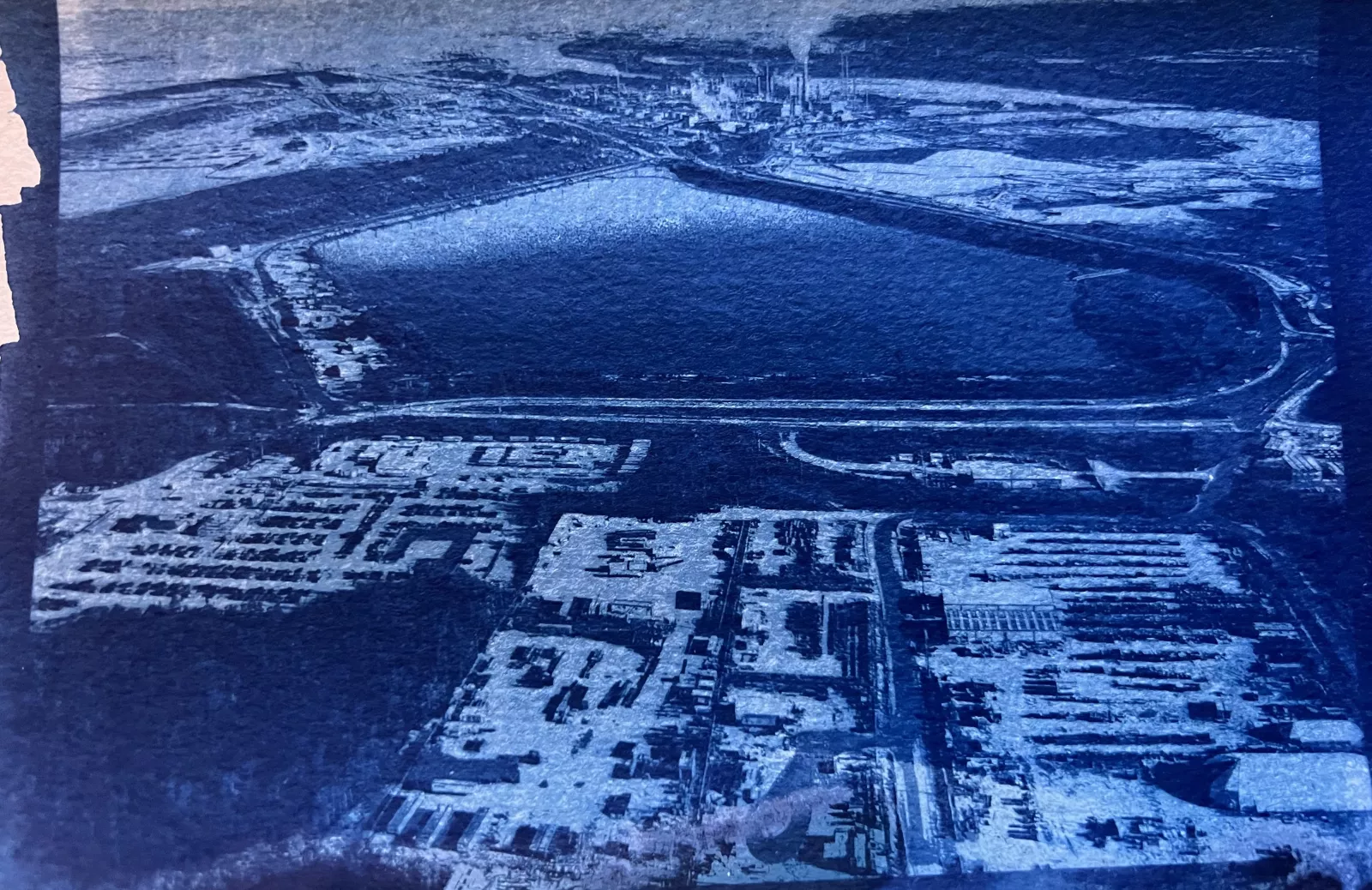Petrography and Land-relations: Embodying Indigenous Energy Intimacy

Warren Cariou will explore the relationship between energy and land and reflect on his embodied practice of working with bitumen in his photography within the context of his Métis heritage.
Warren Cariou was born in Meadow Lake, Saskatchewan into a family of Métis and European heritage. Though he has lived away from Meadow Lake for many years, his art and academic work maintains a focus on the cultural and environmental questions that have preoccupied the people of his homeland. His books, films, photography, and scholarly research explore themes of community, environment, orality and belonging in the Canadian west, with particular focus on the relationships between Indigenous stories and the land.
While Indigenous communities and territories across Turtle Island have been assaulted by world-altering energy extraction projects for generations, Indigenous peoples themselves have always maintained radically different conceptions of energy from the colonial/capitalist model in which energy is a neutral-seeming input, measured in abstractions and insulated away from privileged populations. This presentation explores the idea, present in many Indigenous traditions, that energy is a name for the relationship we have with the land. By approaching energy as an aspect of Indigenous relationality and kinship, we can gain a better understanding of the fundamentally ethical nature of all forms of energy. A key aspect of that ethical relationship is the intimate, embodied and place-specific nature of Indigenous teachings about energy. Cariou discusses the philosophy and practice of Indigenous energy intimacy with reference to work by Indigenous artists and thinkers such as Norval Morrisseau, Waubgeshig Rice, Zoe Todd, and Mini Aodla Freeman. This leads to reflections on his own embodied practice of working with bitumen in his photography project, Petrography, within the context of his Métis heritage and the teachings of elders and knowledge keepers. The bitumen for his petrographs is gathered from the banks of the Athabasca River near my home territory, adjacent to the infamous Athabasca tar sands, the largest and most destructive oil extraction zone on earth. While the tar sands mines have destroyed vast tracts of Indigenous homelands and have disrupted the lives of local Indigenous people, he has come to recognize that this is not the fault of the bitumen. His petrography work involves creating a fundamentally different relationship to bitumen, hearkening back to traditional Indigenous uses of the material, and embracing an embodied practice of Indigenous energy intimacy. His hope is that this work can contribute to a broader exploration of Indigenous relational philosophies of energy, and that this can help us to articulate more ethically responsible, anti-extractive approaches to energy on a large scale.
Bryn Mawr College welcomes the full participation of all individuals in all aspects of campus life. Should you wish to request a disability-related accommodation for this event, please contact the event sponsor/coordinator. Requests should be made as early as possible.